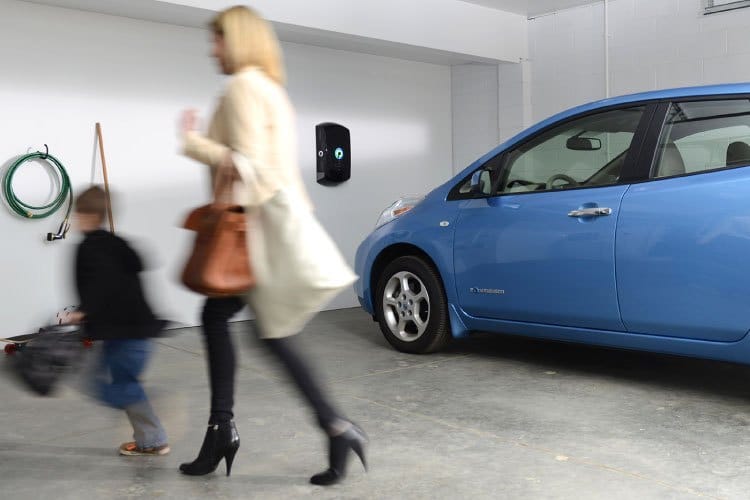
“Through our CleanBC plan, we are building a better future through greener transportation options that are more convenient, affordable, use cleaner energy and improve our air quality,” said Heyman.
Homeowners who install a Level 2 charging station — a 240-volt power source — in a single-family home, qualify for a $350 provincial rebate. A $2,000 rebate is available for those who install a Level 2 charging station designed for multiple users in apartments, condos and workplaces.
Charging stations becoming more common
As of 2019, nine per cent of new car sales are electric. The province’s zero emission vehicle mandate goal for 2025 was 10 per cent.
“That just says to everyone how much people want to get into clean vehicles that reduce emissions, reduce carbon pollution. What they’re concerned about is, can I get to where I need to go?” said Heyman.
There are currently 17,000 charging across the province, and Mungall says that number is going to climb quickly, especially as more homeowners install stations.
The cost of buying and installing an EV charging station for a single-family home is typically between $700 and $2,000, according to the province. For a multi-unit residential building, the cost can range between $2,000 and $12,000.
To qualify for the CleanBC rebates, the EV charging stations must first be installed, and final documentation must be submitted to the province by March 31, 2020.
[WooZoneProducts asin=”amz-B07XR98CW2″][/WooZoneProducts]

